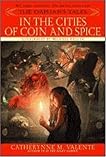10 Ways to Keep Books You Love in Print
There are books you love, books that change your life, books that make you realize that you aren’t alone. But sometimes, those books go out of print and are no longer available. You gnash your teeth and curse the vagaries of publishing. You feel helpless and frustrated, but you know that there’s nothing you can do about it.
Not so! You can do something! Publishing is a capitalist enterprise, driven by sales and profit (as well as a love of books). But even if you’re too broke to buy a paperback book, you can influence book sales and affect a publisher’s profits.
What can you do?
#1 Review the book you love online in a newsgroup, on a webzine, on an e-commerce site, or on a personal web site. This is an easy way to tell a lot of people about a fabulous book. People pay attention to reviews. Hey—authors read reviews. With a good review, you can make an author’s day.
“Of course I read my reviews on Amazon.com. I know I shouldn’t, but I can’t help myself. When readers write and say they loved my work, I’m ridiculously happy for days.”—Pat Murphy, author of There and Back Again.
#2 When asked what you want for your birthday, or Hanukkah, or Christmas, or any other gift-giving occasion, answer with your favorite author’s current book.
“Ask for books as presents! Not only do you get a present you like, you get bonus karma points because you’ve been a decent human being and haven’t forced your friends to rack their brains and run all over town looking for some gift for you that you probably wouldn’t have liked anyway.” —Michaela Roessner, author of The Stars Compel.
#3 Give books as presents. If someone has a favorite author, buy that author’s latest title. If the gift recipient doesn’t have a favorite author, buy a book by an author you like. If your friend likes the book, you’ve done the author a big favor by creating a new fan.
#4 Ask for books by your favorite author at your local library. If the library doesn’t have a book, request it. Checking a book out of the library helps establish that there’s a demand for that author’s work. Demand leads library systems to buy books.
#5 Tell writers how much their work has affected you. Go to readings—even if you can’t afford to buy the book. Urge your local library bookstore or your school to invite the writer to do a talk, a reading, or a class visit. Sometimes writers just need to know that someone is listening.
“I remember the first time anyone ever made a comment to me about a published story. Since writers aren’t allowed to carry Tip Jars, this kind of validation is quite meaningful.” —Leslie What, author of “The Cost of Doing Business.”
#6 Talk about books and authors at work, among friends, and in other not-necessarily literary environments. If you belong to a writing group, recommend your favorite authors to the group. If you add a book to your reading group, tell your favorite bookstore what you’ve done and buy your books there. The bookstore may put them out front on display.
“I named my dog Rhodry after a character in Katharine Kerr’s Deverry novels. This has led directly to at least a dozen people reading her books, including my sister, who has now read most of them twice. (‘That’s an interesting name, where does it come from?’) My truck is named Tesah, after a starship in Rebecca Meluch’s first novel. I got a couple of people to read her work as a result, but you don’t call your truck as often as you call your dog—at least I don’t.” —Susanna J. Sturgis, editor of The Women Who Walk Through Fire: Women’s Fantasy and Science Fiction.
#7 Point to good books in the bookstore and tell people, even total strangers, “That one is great.” If you see someone looking at a copy of a book you like, encourage them to buy it.
“I like to turn waiting time (especially in airports) into a guerrilla act—I find my favorite authors’ books in the bookstore and turn them boldly facing out. Then I run for my plane before a clerk catches me.” —Ellen Klages, author of “Time Gypsy.”
#8 Carry around a copy of a book you love. Read it on buses, in waiting rooms, and in other public places. Be prepared to wax eloquent about it—spontaneously or only when asked; that’s up to you.
“Ooh ooh, I’ve got a wicked idea! Make book covers out of your favorite titles and put ‘em on whatever book you’re reading!” —Susanna J. Sturgis.
#9 Just because a book is out-of-print doesn’t necessarily mean you can’t get it. Lightning Print Inc. is currently asking for suggestions for books to reprint. You can vote now at their web site: . Then from their “Resources” menu select “Nominate titles for POD and eBook”, then tell them what books you’d like to see reprinted!
#10 Nominate your favorite authors for awards. Any year that you are a member of the World Science Fiction Convention, you can nominate and vote for the Hugo Award. Nominate gender-bending works for the James Tiptree Jr. Memorial Award and works with gay or lesbian content for the Lambda Literary Award. If you subscribe to Locus Magazine, you can nominate works for the Locus Poll and Survey. And yes, it’s worth taking the time—awards make a difference to an author’s sales and that helps keep books in print.
Above all else, keep reading!
 Hey everyone --
Hey everyone --

